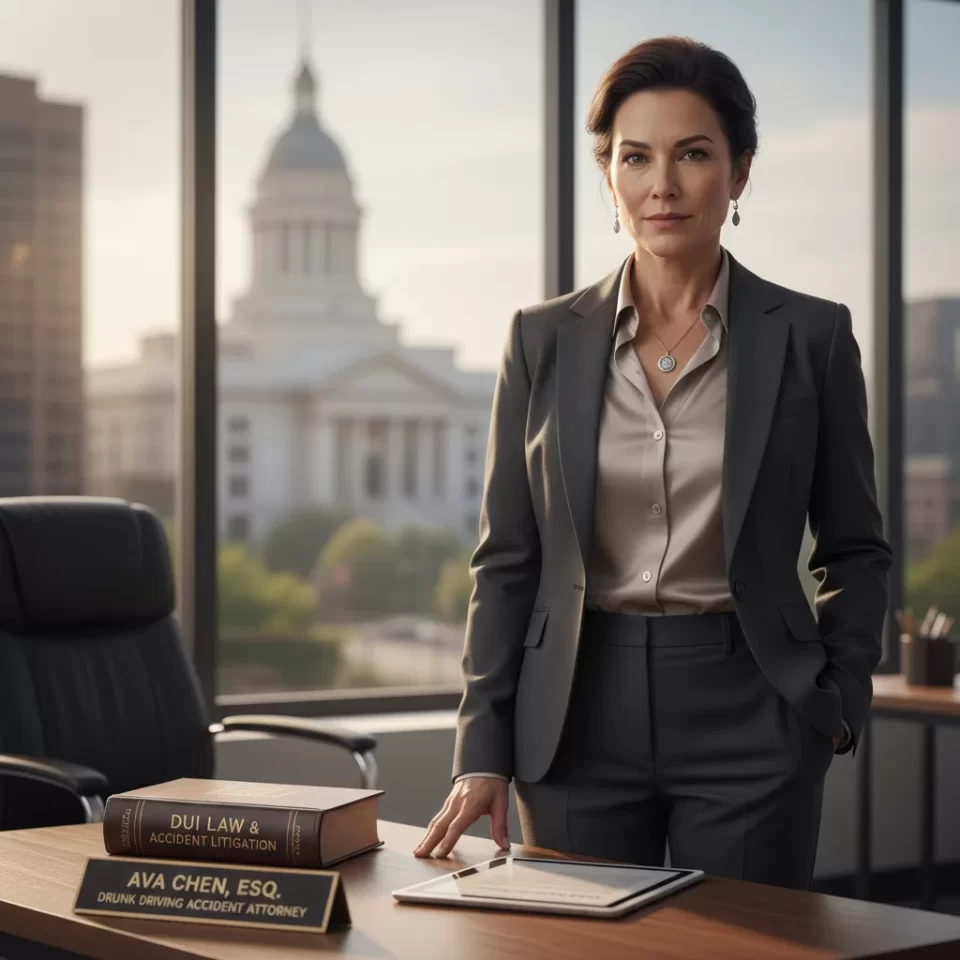- Home
- Sexual Abuse
- Rape
- Child Rape
Child Rape
- February 15, 2026
-
Sarah Miller
- Fact Checked By Our Attorneys
Child rape is one of the most severe forms of child sexual abuse, involving sexual assault or penetration of a minor who cannot legally consent. This devastating crime leaves lifelong physical and emotional scars for survivors who were sexually abused, as well as deep pain for their families. While the trauma may feel overwhelming, there are steps you can take to seek justice. Families can report suspected child abuse, hold institutions accountable, and pursue legal action.
Legal Claim Assistant provides free, confidential case reviews to help survivors of child abuse explore justice and compensation.
No Win, No Fee. Let the Best Sex Abuse Attorneys Fight for your Compensation!
Key Takeaways:
Child rape is one of the most severe forms of child sexual abuse, involving sexual assault or penetration of a minor who cannot legally consent.
Survivors often suffer lifelong consequences, including PTSD, depression, anxiety, substance abuse, and difficulty maintaining trust or relationships.
Institutions such as schools, churches, camps, and sports programs may be held accountable if they allowed abuse to occur or attempted to cover it up.
Legal protections exist at both state and federal levels, including criminal prosecutions and civil lawsuits for compensation. Statutes of limitations play a key role in eligibility.
Legal Claim Assistant provides free, confidential case reviews with no upfront fees, helping survivors and families pursue justice and financial recovery.
Find out your eligibility in 2 minutes
If you or your child has been affected by groping, you are not alone. Many families face the same fear, confusion, and questions. Here you can learn how to hold offenders accountable and explore your legal options to pursue justice and the compensation you deserve.
Begin your free and confidential case review today.

What Is Child Rape and How It Relates to Child Sexual Abuse?
Child rape is a severe form of child sexual abuse that include sexual assault or penetration of a minor. By law, a child cannot consent to sexual activity, meaning any sexual acts, sexual touching, or physical contact with a minor is considered sexual abuse. In the vast majority of cases, the child victim is targeted by someone they know and trust often a family member, teacher, coach, or authority figure. Unfortunately, most children do not immediately disclose what happened, leaving them vulnerable to continued exploitation.
It is important to differentiate child rape from other related terms.
- Molestation typically refers to inappropriate touching or sexual activity without penetration, while rape involves penetration.
- Statutory rape applies when an older child or minor engages in sexual activity with an adult or someone above the legal age of consent, even if the child “appeared willing.” Since minors cannot legally consent, these acts are still classified as sexual abuse.
The consequences of sexual exploitation go far beyond the act itself. Survivors may suffer from sexually transmitted diseases, adolescent health issues, mental health disorders, low self-esteem, depression, and suicidal thoughts. Many victims experience fear, anger, confusion, and difficulty forming relation later in life.
According to research published in the American Journal of Public Health, a significant number of boys and girls who are sexually abused develop long-term problems with school performance, friendships, and family relationships.
In most cases, the perpetrator uses violence, threats, neglect, or manipulation to silence victims. This can include exposing children to pornography, voyeurism, or internet crimes involving child pornography. With the growth of online platforms, many cases now include grooming through the internet, making it harder for parents to keep children safe.
Preventing child rape requires education, child abuse prevention programs, crisis intervention services, and support groups that respond quickly when abuse is suspected. Families, friends, and communities play a vital role in helping victims feel respected, believed, and supported. When a child is sexually assaulted, it is critical to report abuse to police and child protection authorities immediately to begin an investigation, secure evidence, and ensure the survivor’s safety.
To better understand the difference between rape and sexual assault, see our guide on Sexual Assault vs. Rape.
“Child rape leaves deep emotional wounds that require time, support, and understanding to heal.”
The Trauma and Impact on Survivors Who Were Sexually Abused
The trauma of child rape and child sexual abuse can last a lifetime. Survivors who were sexually abused as children often struggle with emotional, physical, and social consequences that affect every stage of life. Unlike other forms of child abuse, the impact of sexual violence is deeply personal and invasive, making recovery especially complex. While the scars are profound, it is important to remember that healing is possible, and with the right support, survivors can find both safety and justice.
No Win, No Fee. Let the Best Sex Abuse Attorneys Fight for your Compensation!
Emotional Consequences
Many survivors experience post-traumatic stress disorder (PTSD), flashbacks, nightmares, and severe anxiety. Feelings of fear, shame, and guilt are common, even though the child victim is never responsible for the abuse. Survivors may become depressed, develop low self-worth, or struggle with suicidal thoughts. The betrayal of trust by a perpetrator especially when the abuser is a family member, authority figure, or adult they depended on often leads to difficulty trusting others later in life. Research shows that both boys and girls who were abused at a young age have a higher risk of developing long-term mental health disorders.
Physical Consequences
The physical effects of sexual abuse vary, but many children suffer injuries from unwanted touching or penetration. Survivors may face chronic pain, reproductive health complications, or vulnerability to infections. Studies reveal that children who are sexually abused may experience disrupted brain development and hormonal imbalances that affect personality, behavior, and overall health as they grow into adults. In addition, some survivors of child rape also witnessed or endured domestic violence at home, compounding the trauma.
Social Consequences
The social impact of child rape extends into school, friendships, and future relationships. Survivors may withdraw, experience difficulty engaging with peers, or face problems with trust and intimacy. Many report difficulty concentrating in class, a higher likelihood of dropping out of school, or struggles maintaining employment as adults. Survivors of both genders often battle stereotypes and stigma, which can make them feel isolated.
Hope and Healing
Although the effects of child sexual abuse are severe, healing is possible through therapy, supportive communities, and access to justice. Families and professionals can help by focusing on child abuse prevention, early intervention, and ensuring survivors know they are not alone. Programs that educate children and adults about warning signs of abuse are vital in reducing risk.
Long-Term Mental Health Effects
The emotional harm of child rape does not end once the abuse stops. Many survivors carry the pain into adulthood, where it can surface as severe depression, anxiety, or post-traumatic stress disorder (PTSD). Survivors may also struggle with low self-esteem, difficulty forming healthy relationships, or feelings of guilt and shame, even though the abuse was never their fault. Research shows that child victims of sexual abuse are at significantly higher risk of substance abuse, self-harm, and suicide compared to peers who were never abused.
Intergenerational Impact on Families
The trauma of child rape extends beyond the individual victim and affects the entire family. Parents may struggle with anger, guilt, and helplessness, while siblings often feel confused or neglected as attention shifts to the survivor’s needs. In some families, the emotional impact may strain marriages or lead to breakdowns in communication. Without proper counseling and resources, these ripple effects can create intergenerational cycles of fear, mistrust, or unresolved trauma.
Survivors of child rape who were molested may relate to similar challenges. Learn more about these experiences in our guide on Molested.

Child Rape in Institutional Settings
Child rape does not only occur within homes but is tragically widespread in institutional settings such as churches, detention centers, sports teams, and summer camps. In these environments, children are often placed in positions of trust under the supervision of authority figures. Unfortunately, predators including pastors, teachers, coaches, and staff members have exploited this trust to commit child rape and other forms of child sexual abuse.
In many cases, institutions failed to respond properly to early reports of abuse, ignored warning signs of inappropriate touching or grooming behavior, or even worked to protect the abuser instead of the child. This negligence not only allowed abuse to continue but also placed more children at risk. Some institutions have since been held legally responsible for enabling or covering up abuse.
The impact on victims is devastating. Survivors who were raped in institutional settings often struggle with long-term emotional scars, difficulty trusting authority, and a sense of betrayal by organizations meant to protect them. For many, the trauma is compounded by the silence of communities that prioritized reputation over child safety.
Research and statistics show that institutional abuse cases often include multiple victims across many years. Because children may fear speaking up against authority figures, most cases are underreported until much later in life. This delay means survivors often live for years with the effects of rape fear, depression, suicidal thoughts, and difficulties in relations before justice is pursued.
Institutions can and should be held accountable when they fail in their duty of care. Families may pursue legal action not only against the individual perpetrator but also against the church, detention facility, or sports organization that ignored or enabled the abuse.
For related information, see our guide on Sexual Battery vs. Rape to understand the distinctions in how the law addresses different forms of sexual abuse.
Legal Definitions and Protections Against Sexual Abuse
Child rape is clearly defined under both state and federal law as the sexual assault or penetration of a minor. Since a child cannot legally consent to sexual activity, any act of penetration whether by force, coercion, or manipulation is a serious crime. Laws are designed to protect children from exploitation, and courts treat these offenses as among the most severe forms of sexual abuse.
Across the U.S., states may use different terms, such as “child rape,” “aggravated sexual assault,” or “first-degree sexual abuse,” but the meaning remains consistent: when a person engages in sexual acts with a child, the act is criminal regardless of circumstance. Federal law also criminalizes offenses involving child pornography, online enticement, and trafficking, providing another layer of protection for minors.
One crucial legal factor is the statute of limitations the time limit survivors have to bring a case forward. Some states have eliminated these limits for child rape, while others allow survivors to file within a certain number of years after turning 18 or after discovering the impact of the abuse. Statutes of limitations matter because many survivors do not disclose their trauma until adulthood, sometimes decades later. Without extended deadlines, victims may lose the ability to seek justice even though their suffering is lifelong.
It is also important to distinguish child rape from related legal terms:
- Statutory rape refers to sexual activity between an adult and a minor below the age of consent, even if the child appeared to agree.
- Child rape typically involves penetration and is prosecuted as a more serious offense.
- Sexual abuse may include a wider range of behaviors, from molestation to exploitation, not always involving penetration.
Understanding these distinctions is vital for families pursuing justice. For more details, see our resource on Statutory Rape to understand how age of consent laws interact with charges of child rape.
Ultimately, laws exist to hold offenders accountable, safeguard children, and prevent future harm. When properly enforced, these protections help survivors find a path toward healing and justice.
FREE!
Find out if you're eligible and may be eligible for compensation.
Get your Free Case Review and Maximize You Payout With the Help From Legal Claim Assistant.
Child Rape Cases and Prosecutions
When child rape is suspected or reported, investigations are typically handled by local police and child protective services, with the FBI becoming involved if interstate crimes, internet exploitation, or trafficking are suspected. Investigators often collect digital evidence, interview witnesses, and use forensic examinations to build strong cases. Protecting the child victim during this process is a top priority, which is why specially trained officers, social workers, and counselors are often part of the investigative team.
Criminal charges for child rape are severe and can include decades-long prison sentences or even life imprisonment. Prosecutors must prove the abuse beyond a reasonable doubt, and penalties vary depending on the child’s age, the nature of the act, and whether force or threats were involved. These prosecutions also send a strong message that society will not tolerate crimes that devastate young lives.
In addition to criminal cases, survivors and their families may pursue civil lawsuits. While criminal law focuses on punishing the perpetrator, civil law seeks to provide survivors with compensation for the lifelong consequences of abuse such as therapy costs, lost opportunities, or severe emotional suffering. Families may also file lawsuits against institutions like schools, churches, or camps if negligence allowed the abuse to occur.
It’s important to understand that criminal prosecution and civil litigation can proceed separately. A perpetrator may face prison through the criminal court while also being held financially liable in civil court. For survivors, this dual path offers both accountability and practical support for recovery.
“Breaking the silence is the first step toward justice and healing for survivors of child sexual abuse.”
Warning Signs for Parents
While it is impossible to predict every risk, parents and caregivers can watch for warning signs in institutional settings. Be alert to organizations that:
- Discourage parental involvement or limit access to children during activities.
- Fail to perform background checks on staff or volunteers.
- Dismiss or minimize complaints of inappropriate behavior.
- Allow unsupervised one-on-one time between adults and children.
Though the trauma of rape can leave survivors struggling with depression or even thoughts of suicide, pursuing justice can also be a step toward healing. The legal system, when combined with strong emotional support, provides a way for survivors and families to reclaim dignity and hold wrongdoers accountable.
FREE!
Find out if you're eligible and may be eligible for compensation.
Get your Free Case Review and Maximize You Payout With the Help From Legal Claim Assistant.
How Families Can Take Action
When a child has been raped, families often feel overwhelmed, afraid, and unsure of what steps to take. Taking immediate and thoughtful action is critical to protect the child and preserve their future.
The first priority is always safety and medical attention. Survivors should be taken to a hospital or pediatric clinic as soon as possible, where trained professionals can treat injuries, prevent sexually transmitted diseases, and provide emotional care. This also ensures proper medical documentation, which can later serve as important evidence in court.
Families should then report the abuse to law enforcement or child protective services. Even if the perpetrator is a trusted person such as a teacher, coach, or even a family member authorities must be notified so they can begin an investigation. Many cases are uncovered when women, parents, or other caregivers step forward and speak out about what happened.
It is also crucial to preserve any potential evidence. This may include clothing, digital messages, or witness accounts. Avoiding unnecessary washing or cleaning before a medical exam can also help retain forensic proof. While this step may feel painful, it strengthens the case against the abuser and increases the chance of justice.
Families should connect with an experienced sexual abuse attorney. The legal process can be complex, and professional guidance ensures that survivors’ rights are protected. Attorneys not only fight for justice in criminal cases but can also help families pursue civil claims for compensation. These resources can cover therapy, medical treatment, and long-term support for recovery.
Free Legal Support for Survivors of Child Rape
If your child has been a victim of rape, know that you are not alone. Survivors and their families often carry an overwhelming burden, but legal and emotional support is available. At Legal Claim Assistant, we understand the trauma and fear that follows such abuse, and we are here to guide you with compassion and care.
Our team offers free, confidential case reviews with no upfront fees and no obligation. Every conversation is handled with complete privacy, so families can feel safe sharing their story. We connect you directly with experienced sexual abuse attorneys who are committed to holding perpetrators and institutions accountable for their intended actions.
These attorneys fight not only for justice but also for the financial compensation needed to cover therapy, medical care, and long-term recovery support. By working with Legal Claim Assistant, you gain access to professionals who will stand beside you every step of the way, helping you pursue justice and rebuild your family’s future.
You Deserve Justice. Let Us Help.
Speak with a trusted sexual abuse attorney who will stand by your side, protect your privacy, and fight for the compensation you deserve.
No Win, No Fee. Let the Best Sex Abuse Attorneys Fight for your Compensation!
Under 1 Minute
100% Free
Expert-Reviewed
Private & Secure
© 2025 Legal Claim Assistant. All Rights Reserved.
Terms of Service | Privacy Policy | Contact Us | Marketing Partners
Related Article

How a Drunk Driving Accident Attorney Can Help After a Crash

